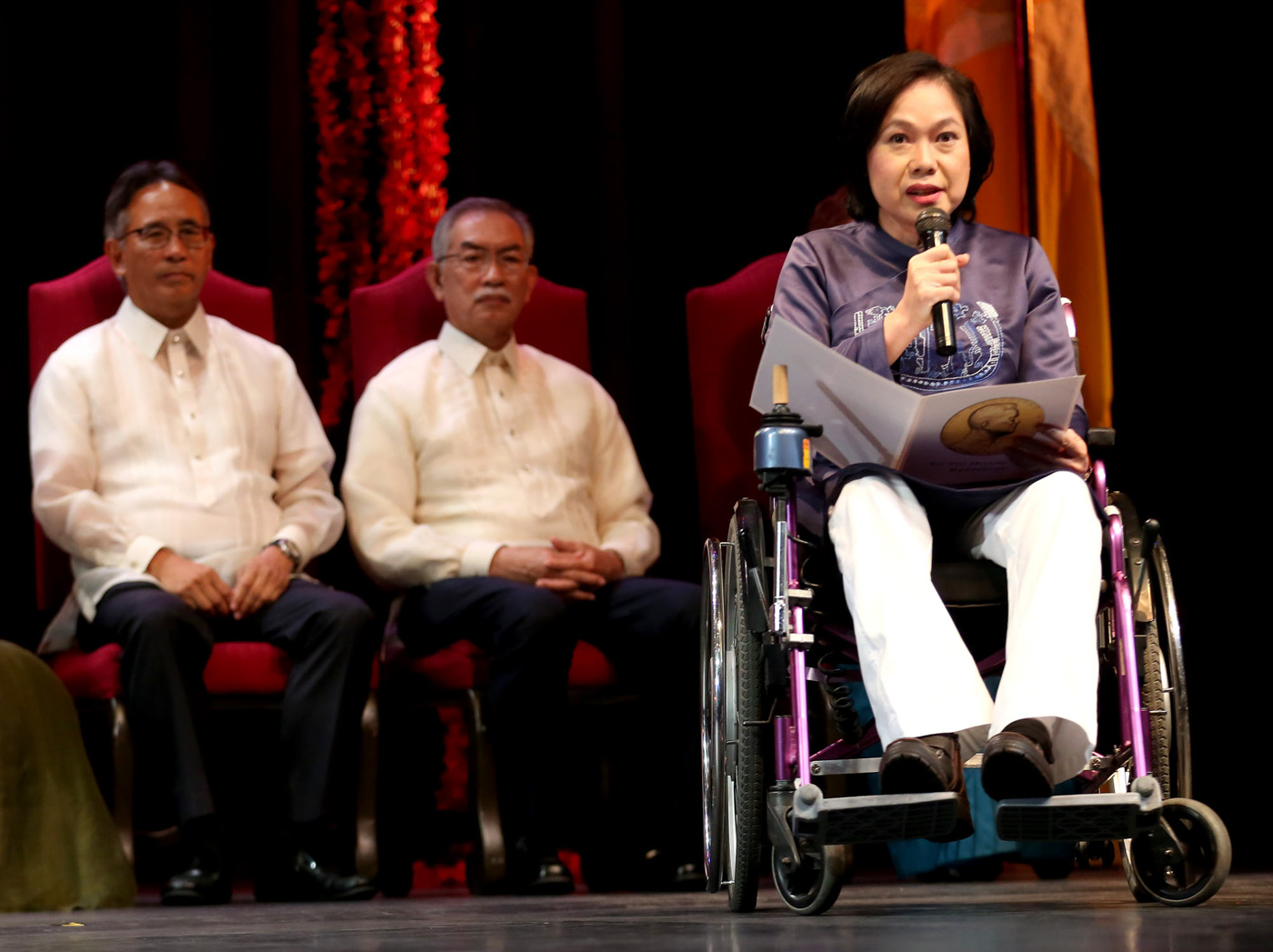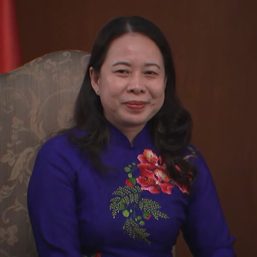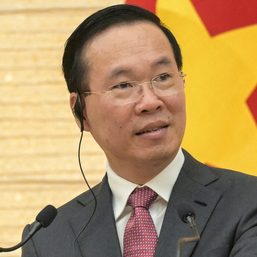SUMMARY
This is AI generated summarization, which may have errors. For context, always refer to the full article.
This compilation was migrated from our archives
Visit the archived version to read the full article.
MANILA, Philippines – By all accounts, Vo Thi Hoang Yen was qualified to get the very first job she applied for.
She earned her college degree at a university in Ho Chi Minh. She learned English and could translate fast. Even the director of the company she applied for wanted her to start working just days after their interview concluded.
But what was supposedly Yen’s first day at the company turned out to be her last, as she lost the job as soon as the company found out she’s a person with disability.
“I was shocked, I was so angry inside, I was upset, because I was turned down not because of my ability, but because of my impairment, my disability,” she told Rappler in an interview in August.
At that point, she had come a long way already, overcoming all types of discrimination while pursuing higher education. But Yen, a survivor of childhood polio, was not one to give up in the face of a setback. (READ: ‘Change the world by being better persons’ – Magsaysay Awardee Vo Thi Hoang Yen)
“I felt so hopeless, kind of no future, no bright future for me, but I didn’t want to be dependent on the support of my sisters, so I thought and thought, and I met a new season that I would make something to change my life and for other people with disabilities,” she said.
In 2005 – years after her first job interview – Yen and 3 other persons with disabilities put up the Disability Research and Capacity Development (DRD), a non-profit organization in Vietnam that seeks to create “an equal and non-discriminatory society” for PWDs.
Since its establishment in 2005, DRD has helped some 15,000 PWDs with scholarships, job placements, and skills and capacity building activities, among other assistance.
The organization has also worked with government and the business sector in Vietnam to craft PWD-related policies and promote PWD-friendly environments.
Her work in advocating for the welfare of PWDs in Vietnam has earned Yen the prestigious Ramon Magsaysay Award, considered the Asian equivalent of the Nobel Peace Prize.
Changes
According to Yen, a lot has changed for PWDs in Vietnam since her experience from more than a decade ago.
“The government signed the Convention on the Rights of Persons with Disabilities in 2007, and they ratified the convention by passing the Disability Law in 2011, and, with that legal framework, there’s a lot of change in Vietnam,” Yen said.
“[What keeps me going] is the success of the people I help.”
– Vo Thi Hoang Yen, 2018 Ramon Magsaysay awardee
She added, “More opportunities opened for students with disabilities, and more job opportunities for people with disabilities, and also they tried to make some changes in the physical environment, although there’s still little change, but there are changes.”
While Yen described the law as “comprehensive,” she said its implementation is still a challenge. This is why DRD continues to work with the government to help them understand that the philosophy of the international convention and the core values of their local law are based on the social model, which is different from the charity model.
But for Yen, the biggest challenge for PWDs is still the country’s inaccessible environments.
“Many young people with disabilities cannot go to school or go to work because we don’t have enough accessible physical environment, no ramps, no lifts, and even the public transportation is not accessible, so it’s really the biggest challenge,” she explained.
While the country has more accessible buses now, Yen said these are still not enough for the needs of PWDs.
“And also the change of campus – for example, university campuses [and] other schools – still depends on the mindset of the principals [and] administrators of that school. So, [we] still have a long way to go,” she said.
Success stories
As for employers in Vietnam, Yen said while there are more job opportunities for PWDs today, some PWDs still face difficulties in finding jobs, especially those who could not go to college or university because of inaccessible environments and “the negative attitude still available in society.”
Part of DRD’s work is to help PWDs write their curriculum vitae, answer interview questions, improve their self-esteem, and find suitable employment.
“So in my organization we try to contact the business people to ask them to have the job offer for people with disabilities, and my organization, myself, we try to find the qualified workers for their business and we use successful cases to advocate for more job offers,” Yen said.
But the organization does not stop once the person has been hired by an employer.
“When we have helped them to find jobs, we still do the followup for several months, because we need to work with the employers on how to modify the job, the work in place, so that it’s more suitable for that person,” she explained.
DRD also helps other disabled people’s organizations in local areas to build their leadership, find seed money for their business ideas, and create jobs for themselves or their members.

“Do not look at them as disabled persons, with only their impairment, but look at them as a human being first, and see the capacity.”
‘Human beings first’
If the Ramon Magsaysay Award is any indication, Yen and DRD have touched many lives and empowered many PWDs in Vietnam. But Yen did not hesitate to share the challenges they still face today.
“I think the challenge of my organization is similar to the challenge [of] many NGOs in Vietnam. We have two main challenges. First is the sustainability of my organization, because right now…more and more [donors are withdrawing] from my country, but the government is not ready to support local NGOs. And the second challenge is to find someone to succeed my position,” Yen shared.
But even with these difficulties, Yen is already thinking of what she wants to do next. For instance, she wants to build an online school to help provide life skills for disadvantaged young people.
“[What keeps me going] is the success of the people I help. Many young people, they join my activities or they learn about my story, and they e-mail or call me and say, ‘I will follow your footstep,’ ‘I will try my best to go on with my education,’ or ‘I made the decision to change my life.’ These examples serve as kind of encouragement for me to go on with my work,” Yen said.
As a person with disability herself, Yen knows that opening opportunities for PWDs will help them develop their capacity and “become a helpful person to the family and to society.”
“Do not look at them as disabled persons, with only their impairment, but look at them as a human being first, and see the capacity,” Yen said. “If you see the capacity, you will open the door for them, give them opportunity to develop to their fullness. They do not like ability, the only thing they like is the opportunity.” – Rappler.com
TOP PHOTO: Vo Thi Hoang Yen talks to Rappler during an interview on August 29, 2018. Photo by Maria Tan/Rappler
SECOND PHOTO: Vo Thi Hoang Yen speaks during the awarding ceremony held at the CCP in Pasay City on August 31, 2018. Photo by Inoue Jaena/Rappler
Read other 2018 Ramon Magsaysay profiles:
Add a comment
How does this make you feel?





There are no comments yet. Add your comment to start the conversation.